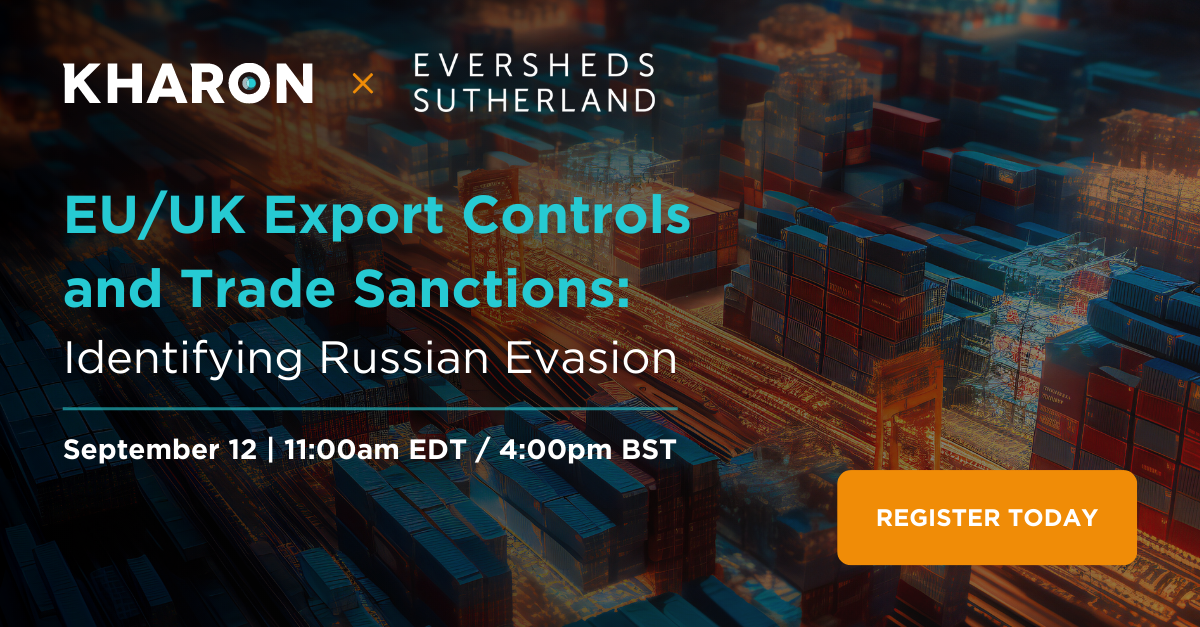
Join experts from Eversheds Sutherland and Kharon for an in-depth discussion on EU and UK financial and trade sanctions and best practices for identifying sanctions evasion.
Following Russia’s invasion of Ukraine, the EU and UK implemented a series of financial and trade sanctions designed to punish Moscow and degrade various military, financial and economic capabilities dependent on western technology and financial markets.
Restrictions target oligarchs and senior government officials, state owned or sponsored enterprises and exports and imports of key goods, including in the Russian steel and iron sector, aviation, advanced technology and software, semiconductors, sensitive machinery, maritime navigation, radio communication technology, transportation and chemicals. As recent guidance and statements from EU and UK officials make clear, identifying and preventing evasion of sanctions against Russia is a key priority for policymakers and regulators.
SPEAKERS:


Zia Ullah, Partner, Head of Corporate Crime & Investigations, Eversheds Sutherland


Howard works closely with business, compliance, and legal professionals to strengthen programs and controls for managing risks at the intersection of global security and commerce. Howard has over two decades of experience in combating illicit financial activity in both the government and the private sector. Howard served at the U.S. Treasury Department from 2001 to 2011, including as Deputy Assistant Secretary and Assistant Secretary (Acting) for Treasury's Office of Intelligence and Analysis.
Howard led Treasury's intelligence functions, including oversight of analytical production, risk assessment, security, and strategic planning. Following his service at Treasury, Howard held leadership positions in Enterprise Compliance at PNC Financial Services Group. He is a recognized thought leader on global security and risk matters and speaks regularly at conferences.